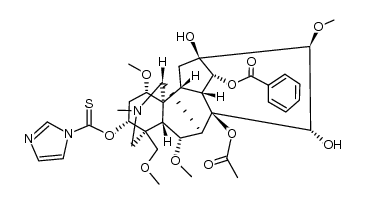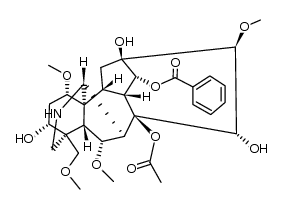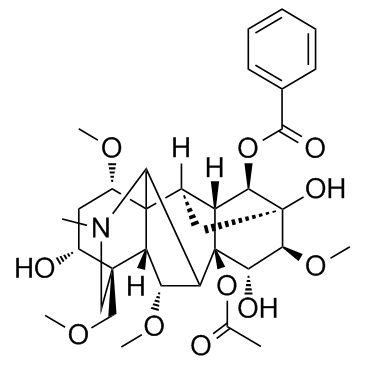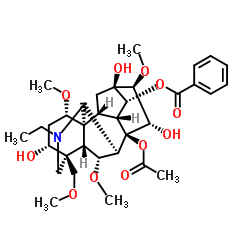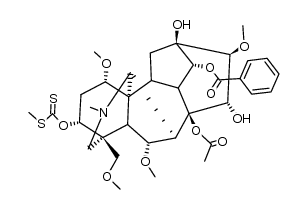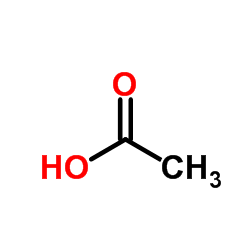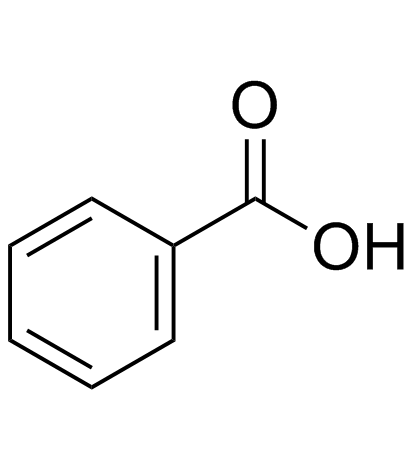6900-87-4
| Name | Hypaconitine |
|---|---|
| Synonyms |
Japaconitine C1
HYPACONITINE (PRIMARY STANDARD) Japaconitine B1 (1α,6α,14α,15α,16β)-8-(acetyloxy)-13,15-dihydroxy-1,6,16-trimethoxy-4-(methoxymethyl)-20-methylaconitan-14-yl benzoate DEOXYMESACONITINE 15-tetraol,16,16-trimethoxy-4-(methoxymethyl)-20-methyl-18-aconitane-14 (1α,6α,14α,15α,16β)-8-Acetoxy-13,15-dihydroxy-1,6,16-trimethoxy-4-(methoxymethyl)-20-methylaconitan-14-yl benzoate Japaconitine C |
| Description | Hypaconitine, an active and highly toxic constituent derived from Aconitum species, is widely used to treat rheumatism. IC50 value:Target:In vitro: The present study investigated the metabolism of hypaconitine in vitro using male human liver microsomes. The primary contributors toward HA metabolism were CYP3A4 and 3A5, with secondary contributions by CYP2C19, 2D6 and CYP2E1 [1].In vivo: |
|---|---|
| Related Catalog | |
| References |
| Density | 1.4±0.1 g/cm3 |
|---|---|
| Boiling Point | 671.3±55.0 °C at 760 mmHg |
| Molecular Formula | C33H45NO10 |
| Molecular Weight | 615.711 |
| Flash Point | 359.8±31.5 °C |
| Exact Mass | 615.304321 |
| PSA | 133.22000 |
| LogP | 0.92 |
| Vapour Pressure | 0.0±2.2 mmHg at 25°C |
| Index of Refraction | 1.607 |
CHEMICAL IDENTIFICATION
HEALTH HAZARD DATAACUTE TOXICITY DATA
|
| Symbol |

GHS06 |
|---|---|
| Signal Word | Danger |
| Hazard Statements | H300 |
| Precautionary Statements | P301 + P310 + P330 |
| Safety Phrases | 24/25 |
| RIDADR | UN 1544 |
| Packaging Group | I |
| Hazard Class | 6.1(a) |
| HS Code | 29399990 |
|
~92% 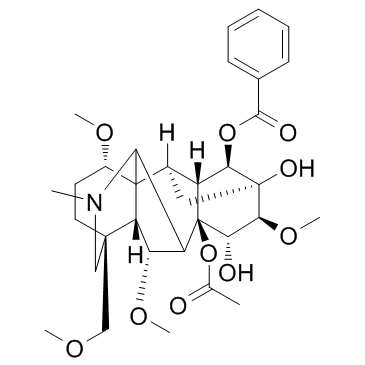
6900-87-4 |
| Literature: Kulanthaivel, Palaniappan; Pelletier, S. William Tetrahedron, 1988 , vol. 44, # 14 p. 4313 - 4320 |
|
~% 
6900-87-4 |
| Literature: Tetrahedron, , vol. 44, # 14 p. 4313 - 4320 |
|
~% 
6900-87-4 |
| Literature: Tetrahedron, , vol. 44, # 14 p. 4313 - 4320 |
|
~% 
6900-87-4 |
| Literature: Tetrahedron, , vol. 44, # 14 p. 4313 - 4320 |
|
~94% 
6900-87-4 |
| Literature: Mori; Murayama; Bando; Kawahara Chemical and Pharmaceutical Bulletin, 1991 , vol. 39, # 11 p. 2803 - 2806 |
| Precursor 5 | |
|---|---|
| DownStream 2 | |


